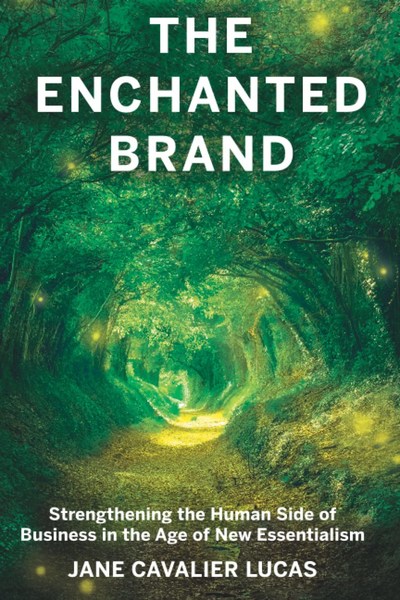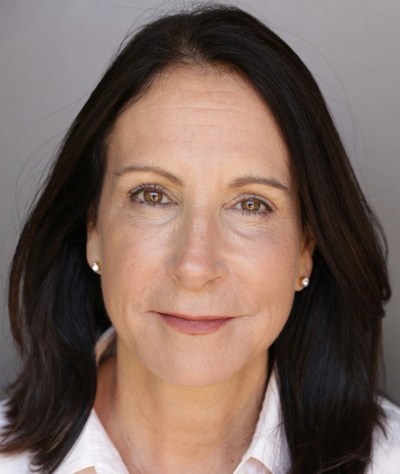WESTPORT, Conn., Feb. 22, 2022 /PRNewswire/ — Call 2022 the collision of brands and politics, a time of vulnerability for nearly every business.
"It is time to re-think the relationship between brands and society," says branding expert Jane Cavalier (Lucas), author of The Enchanted Brand: Strengthening the Human Side of Business in the Age of New Essentialism (2022, Indie Books International).
"Traditional brands have sold without any accountability for their cultural impact, which is now being challenged by the cancel culture," says Cavalier. "Brands can no longer do what they want without considering the negative and positive effects on people and society."
Prior to founding her own firm, BrightMark Consulting in Westport, Conn., Cavalier drove strategic planning for clients of McCann-Erickson worldwide, the world’s largest advertising agency, where she led the rebranding of global companies including ExxonMobil, Motorola and AT&T Solutions.
Cavalier points out that we live in a VUCA world – volatile, uncertain, complex and ambiguous – which is daunting, often terrifying. As people feel a loss of control in the world, they are exerting more personal control where they can. Because brands deliver pervasive cues within our culture with the ability to penetrate consciousness, they are social powerhouses. They can undermine people or they strengthen and advance people. People are condemning brands that deliver destructive social cues."
The VUCA world presents a big challenge and opportunity for brands according to Cavalier. "Brands in the VUCA world have a new priority. They must serve people in order to sell the products they represent," says Cavalier. "To overcome distrust and skepticism, they need to make a connection at another level and empower the imagination. Traditional brands ignore VUCA effects and in doing so often undermine people which puts them a risk to be cancelled."
Cavalier says the VUCA cancel culture challenge is a variant on the term call-out culture and constitutes a form of boycott typically involving a celebrity who is deemed to have acted or spoken in a questionable or controversial manner.
"Think about what has happened to famous authors, talk show hosts, and entertainers in the last two years," says Cavalier. "That can happen to brands too."
Cavalier, who has taught as an adjunct professor at the Yale School of Management and NYU Stern School of Business, says the cancel culture is a modern form of public shaming and ostracism in social media and the real world. Generally, it is a withdrawing of support by the public to create positive change.
"During the Black Lives Matter protests many brands in the fashion industry were called out for a lack of diversity," says Cavalier. "During the pandemic brands like Aunt Jemima, Uncle Ben’s, the Washington Redskins and the Cleveland Indians changed to adapt to a culture that rejects racist stereotypes, which are destructive. These brands modernized in that they chose to accept the cultural responsibility they bear. That’s a huge step forward. We need to end the days of no brand accountability, where brands can do whatever they want for the good of the company that owns them without accepting the social effects on people and culture."
Cavalier says the negative legacy of commercial brands is vast and includes body shaming (eating orders didn’t just materialize), sexualizing alcohol and cigarettes to promote (over) indulgence and attaching social elitism to luxury goods (preppy clothes are just the tip of the iceberg). Tied to driving rabid consumerism, brands are partially responsible for driving up personal debt as people overspend on items they do not need in order to continually pursue an unattainable goal. She believes these kinds of brands are also at risk of being cancelled.
Her book received praise from academics and professionals alike.
"Jane Cavalier masterfully brings to light an advanced and unique brand paradigm. She cleverly illustrates new ways of thinking, innovating, and adapting to an ever-changing social landscape," says Debbie Rose Woloshin, chief marketing officer at LVMH/Marc Jacobs.
Marketing professor at the Wharton School at the University of Pennsylvania and bestselling author Jonah Berger adds, ""The Enchanted Brand is a mind-expanding look at the role brands can play in our new world. It provides a powerful reflection on challenges facing humanity right now and how brands can empower a better world."
You can learn more at www.theenchantedbrand.com.
About Indie Books International
Indie Books International (www.indiebooksintl.com), founded in 2014 in Oceanside, California, has released more than 125 books. Similar to indie film companies and indie music labels, the mission of Indie Books International is to serve as an independent publishing alternative to help business thought leaders create impact and influence.
Contact
Henry DeVries
330338@email4pr.com
619-540-3031
SOURCE Jane Cavalier



